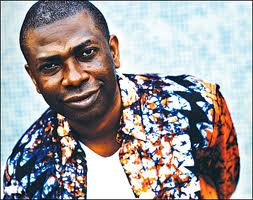Egypt (album): Difference between revisions
No edit summary |
No edit summary |
||
| Line 19: | Line 19: | ||
'''The Incident:''' "Egypt" was accused by the media of insulting Islam by mixing religious ideas with popular music. | '''The Incident:''' "Egypt" was accused by the media of insulting Islam by mixing religious ideas with popular music. | ||
False rumors spread that Mr. | False rumors spread that Mr. N'Dour had brought naked women to film videos at religious sites, film director Chai Vasarhelyi told the Wall Street Journal. | ||
Others objected to combining pop songs with religious themes.<P> | Others objected to combining pop songs with religious themes.<P> | ||
| Line 40: | Line 40: | ||
[[Category:Music]] | [[Category:Music]] | ||
[[Category:Youssou | [[Category:Youssou N'Dour]] | ||
{{DISPLAYTITLE:<span style="font-style: italic;">Egypt</span> (album)}} | {{DISPLAYTITLE:<span style="font-style: italic;">Egypt</span> (album)}} | ||
__NOTOC__ | __NOTOC__ | ||
Revision as of 17:43, 12 January 2012
Date: 2004
Region: Africa
Subject: Religious
Medium: Music
Artist: Youssou N'Dour (b. 1959)
Confronting Bodies: General public, radio stations
Date of Action: 2004
Location: Senegal
Description of Artwork: D'Nour's 2004 album Egypt explores the performer's Islamic faith. The album contains tracks with names such as Allah and Touba Daru Salaam. Touba is the name of a holy city in Senegal.
The Incident: "Egypt" was accused by the media of insulting Islam by mixing religious ideas with popular music. False rumors spread that Mr. N'Dour had brought naked women to film videos at religious sites, film director Chai Vasarhelyi told the Wall Street Journal. Others objected to combining pop songs with religious themes.
Results of Incident: Cassettes of the album were returned to stores, and radio stations refused to play it. Consquently, it had very low sales compared to N'Dour's prior albums.
Youssou N'Dour, confident that his work would win over listeners if it was given a fair hearing, played songs from the album all around the world, including Europe and the US. It eventually won a Grammy award, his first, and in the wake of this honour, many Senegalese decided to give the album another chance.
